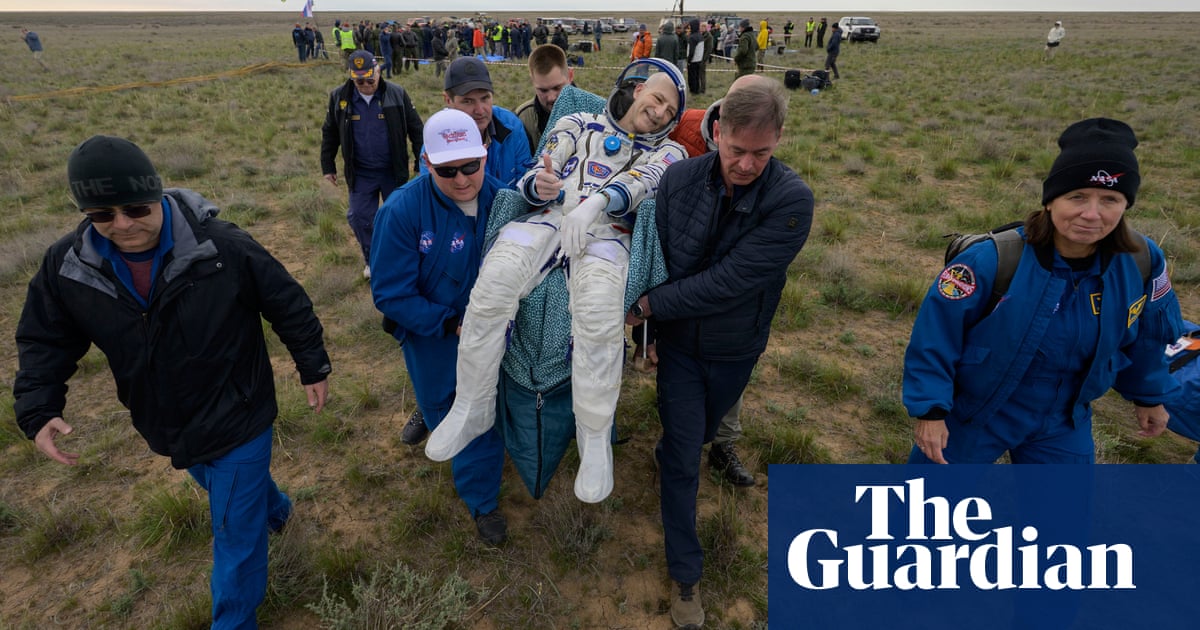Cake, gifts and a low-key family celebration may be how many senior citizens celebrate their 70th birthday.
But Nasa’s oldest serving astronaut, Don Pettit, became a septuagenarian while hurtling towards Earth in a spacecraft to wrap up a seven-month mission onboard the InternationalSpaceStation (ISS).
A Soyuz capsule carrying the American and two Russian cosmonauts landed in Kazakhstan on Sunday, Pettit’s birthday.
“Today at 0420 Moscow time (0120 GMT), the Soyuz MS-26 landing craft with Alexei Ovchinin, Ivan Vagner and Donald (Don) Pettit aboard landed near the Kazakh town of Zhezkazgan,” Russia’s space agency Roscosmos said.
Spending 220 days in space, Pettit, Ovchinin and Vagner orbited the Earth 3,520 times and completed a journey of 93.3m miles over the course of their mission.
It was the fourth spaceflight for Pettit, who has logged more than 18 months in orbit during his 29-year career.
The trio touched down in a remote area south-east of Zhezkazgan in Kazakhstan at 6.20am (0120 GMT) after undocking from the space station just over three hours earlier.
Nasa images of the landing showed the small capsule parachuting down to Earth with the sunrise as a backdrop. The astronauts gave thumbs-up gestures as rescuers carried them from the spacecraft to an inflatable medical tent.
Nasa said in a statement that Pettit was “doing well and in the range of what is expected for him following return to Earth”.
He was then set to fly to the Kazakh city of Karaganda before boarding a Nasa plane to the agency’s Johnson Space Center in Texas.
The astronauts spent their time on the ISS researching areas such as water sanitisation technology, plant growth under various conditions and fire behaviour in microgravity, Nasa said.
The trio’s seven-month trip was just short of the nine months that the Nasa astronauts Butch Wilmore and Suni Williamsunexpectedly spent on the orbital labafter the spacecraft they were testing suffered technical issues and was deemed unfit to fly them back to Earth.
Space is one of the final areas of US-Russia cooperation amid an almost complete breakdown in relations between Moscow and Washington over the Ukraine conflict.
